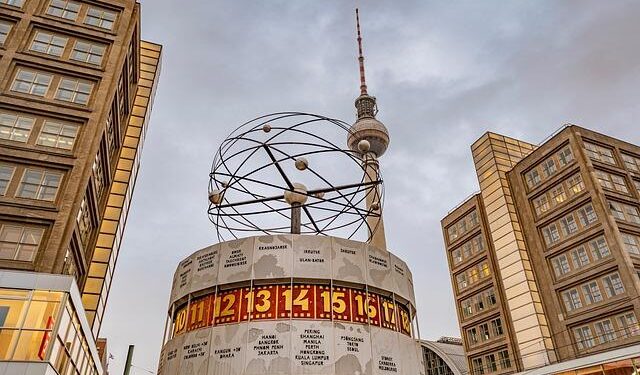Thousands of protesters gathered in the heart of Tirana, Albania’s capital, this week to demonstrate against a European Union-supported court tasked with prosecuting veterans of the Kosovo war. The large-scale rally reflects deep public unease and political tensions surrounding the tribunal, which critics argue undermines national sovereignty and the legacy of those who fought in the 1998-1999 conflict. The demonstration underscores ongoing divisions in the Balkans over justice, accountability, and the complex legacy of the Kosovo war.
Thousands Rally in Tirana Opposing EU-Supported Court Targeting Kosovo War Veterans
In a dramatic show of defiance, thousands of demonstrators flooded the streets of Tirana over the weekend to protest a controversial court established with EU backing, which is focused on prosecuting Kosovo war veterans. The rally, organized by veteran associations and nationalist groups, saw passionate speeches condemning what participants describe as an unjust legal mechanism targeting those who fought in the 1998-1999 conflict. Protesters called for the immediate dissolution of the tribunal, arguing that it undermines the sacrifices made during Kosovo’s struggle for independence and sows division within the Albanian-speaking communities.
Key demands voiced during the rally included:
- Halt all proceedings against Kosovo war veterans
- Revocation of the EU-supported court’s mandate
- Official recognition of veterans’ contributions to Kosovo’s liberation
- Increased transparency in international judicial interventions
| Date | Location | Estimated Attendance | Main Organizer |
|---|---|---|---|
| April 27, 2024 | Tirana, Albania | Approx. 7,000 | Veterans’ Union of Kosovo |
Analyzing the Political and Social Implications of the Demonstrations
The recent demonstrations in Tirana have spotlighted deep-rooted tensions within the region, revealing a complex web of political and social ramifications. At the heart of the unrest lies widespread public skepticism over the involvement of EU-backed judicial bodies prosecuting war veterans from Kosovo. Many protesters perceive these efforts as an infringement on national sovereignty and an attempt to rewrite historical narratives surrounding the Kosovo conflict. This sentiment is amplified by nationalist factions, who argue that such prosecutions undermine the sacrifices made by those who fought during the war, fostering a sense of betrayal and distrust toward international institutions. The demonstrations have thus become a platform for broader debates:
- The legitimacy of external influence in domestic affairs
- The protection of national identity and war memory
- The role of judiciary independence versus political expediency
Politically, the protests have placed the Albanian government in a precarious position, balancing its commitment to EU integration against mounting public opposition. Socially, these events risk deepening divisions among communities who hold divergent views on justice and accountability. Below is a snapshot of the key political actors and their stances related to the demonstrations:
| Actor | Position | Impact |
|---|---|---|
| Albanian Government | Supports EU judicial cooperation but calls for dialogue | Maintains fragile balance; risks political backlash |
| Nationalist Groups | Oppose prosecutions; defend war veterans | Fuel protests; strengthen nationalist rhetoric |
| EU Delegation | Endorses court’s independence and mandate | Ensures rule of law; accused of foreign interference |
Calls for Transparency and Reform in EU-Backed Judicial Processes Amid Growing Discontent
Widespread frustration has mounted across Kosovo and Albania as thousands gathered in the streets of Tirana, protesting the EU-supported judiciary system tasked with prosecuting alleged war crimes committed by Kosovo Liberation Army veterans. Demonstrators argue the court lacks impartiality and transparency, calling into question the legitimacy of an institution heavily backed by European Union funding and oversight. Critics insist that justice should respect national sentiments and historical contexts rather than follow what they perceive as externally imposed legal standards.
Key demands voiced by protesters include:
- Greater transparency in the selection and conduct of EU-backed judges and prosecutors.
- Reform of judicial processes to ensure fair treatment of individuals hailed as national heroes.
- Establishment of independent oversight bodies free from political or international influence.
- Public access to detailed information about ongoing trials and evidence presented.
| Issue | Public Concern | Suggested Reform |
|---|---|---|
| Judicial Independence | Perceived foreign influence over court decisions | Transparent judge appointment process |
| Trial Transparency | Limited access to case details | Open court sessions and public records |
| Victim & Witness Protection | Fear of intimidation impacting testimonies | Enhanced witness protection programs |
In Summary
As tensions continue to simmer in Tirana, the large-scale protests underscore deep divisions within the region over justice and accountability for wartime actions. With the EU-backed court facing fierce opposition from veterans and their supporters, the unfolding crisis poses a significant challenge for both Albanian authorities and international actors striving to maintain stability in the Balkans. Observers will be closely watching how the government navigates this complex issue amid mounting public pressure and the broader implications for Kosovo’s post-conflict reconciliation process.
















